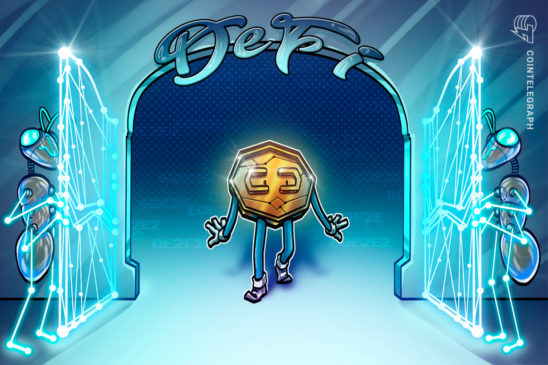Fireblocks, a digital asset custody platform, announced that it has enabled institutional decentralized finance (DeFi) access to Terra (LUNA), the second-largest DeFi protocol by total value locked (TVL). As per the announcement, Fireblocks users can now securely access all the decentralized applications (DApps) built on the Terra blockchain.
The launch is in response to Fireblocks’ early access program users, who invested over $250 million into the Terra DeFi ecosystem within the first 72 hours of its integration going live. According to Michael Shaulov, CEO of Fireblocks, institutional demand for DeFi is only continuing to grow, adding that:
“As their appetite expands, so will their desire to be able to access all of the latest and greatest innovations across different blockchain ecosystems.”
Mr. Tashish RaiSinghani, the CEO of Unicus.One, a Web3 mild code solution, told Cointelegraph that “interoperability of blockchains” is one of the key characteristics of Web3 ecosystems. He noted that this change has given users greater freedom by tilting the power balance in their favor. They may take quick action whenever they encounter an opportunity because of flexibility, adding:
“The integration of Fireblocks with Terra plugs the existing loopholes in the prevalent ecosystem. Conventional Web 2.0 ecosystem lacks an efficient way to access the DApps and the community within the walls of the platform. What is more, security norms in the traditional systems are poor, as the Twitch revelation revealed.”
Terra is a blockchain platform designed initially to allow cross-border retail transactions. The platform has seen an increasing number of original DApps created on its blockchain, ranging from DeFi and payment platforms to gaming and NFT. With nearly 4 million different wallet addresses, Terra’s public blockchain has seen 400% growth in users in the last two years, as per the release.
The DeFi market is no longer confined to retail actors as the institutional investment footprint in the cryptocurrency market segment grows larger. In recent times, DeFi has emerged as a major attraction for big-money players, with financial institutions and banks beginning to invest in the cryptocurrency market segment.
Related: DeFi to reach mass adoption via institutional participation, DEX founder says
Meanwhile, authorities are looking more closely at the DeFi industry, with the United States Securities and Exchange Commission (SEC) launching an inquiry into Uniswap in September last year.
Stricter monitoring procedures have been a major topic of conversation for regulators in large countries, particularly in the realm of DeFi. In August, SEC Chairman Gary Gensler characterized DeFi as one of seven crypto-related policy concerns for the commission. Gensler has also previously stated that many DeFi platforms are “highly centralized” and would need government licensing.



